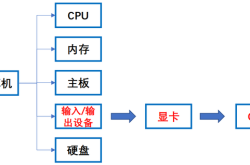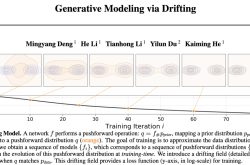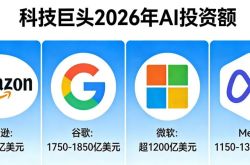Will 'Baidu Search' be replaced by 'Kimi'?
![]() 12/04 2024
12/04 2024
![]() 473
473

Who is Poaching Baidu's Users?
The AI large model wave sparked by ChatGPT has been raging for two years, with AI rapidly penetrating various industries.
If there's one AI application with the lowest entry barrier and broadest application for ordinary users, it has to be AI search.
Baidu, 360, Douyin, Kuaishou, Tencent, Alibaba, Dark Side of the Moon... Whether powerful conglomerates or startups with a natural aura, they have all set their sights on the large pie of AI search, making the commercialization of AI search increasingly urgent.
01. Who Still Uses 'Baidu Search'?
As we approach 2025, are you still using Baidu Search?
Recently, Baidu released its financial report for the third quarter of 2024; the company reported total revenue of RMB 33.6 billion for the quarter, a year-on-year decline of 3%, marking the steepest drop in over two years.
Among them, online marketing, with advertising services at its core, remains Baidu's primary source of income. Baidu's advertising business generated revenue of RMB 18.8 billion in the third quarter, a year-on-year decline of 4%, marking the second consecutive decline.
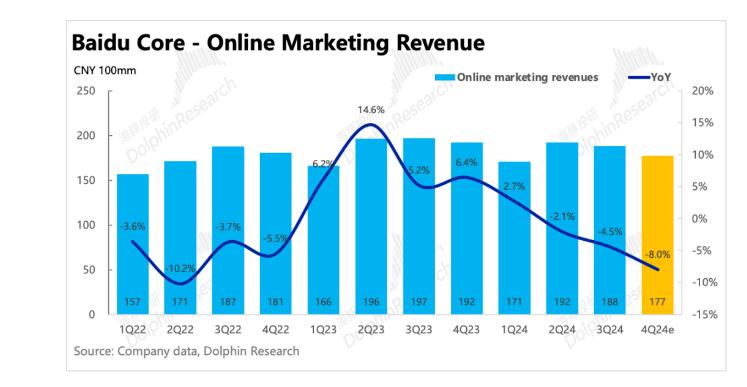
Source: Dolphin Investment Research
The decline in Baidu's advertising business is influenced by macroeconomic factors. According to Dolphin Investment Research, the growth rate of the entire advertising industry slowed down in the third quarter. However, it cannot be ignored that 'traditional search engines' represented by Google and Baidu Search are facing dual challenges from other content platforms and AI search engines.
According to Statista data, while Baidu still ranks first in China's search market in May 2024, its market share has dropped to 55.85%; compared to November 2021, when Baidu's share of China's search market was as high as 86.82%.
In recent years, the rise of content platforms such as WeChat, Douyin, and Xiaohongshu has given users more options when searching for information. "I use Baidu for instant searches and specific apps for vertical searches," said an advertising professional. "For example, when chatting with clients or friends and they mention a recent hot topic that I want to quickly understand, I'll use Baidu Search. If I have a very specific need, like where to eat lunch nearby or finding a cozy cafe to meet clients, I'll use Dianping, Meituan, Xiaohongshu, etc. This is not just me; it's the norm among my friends too."
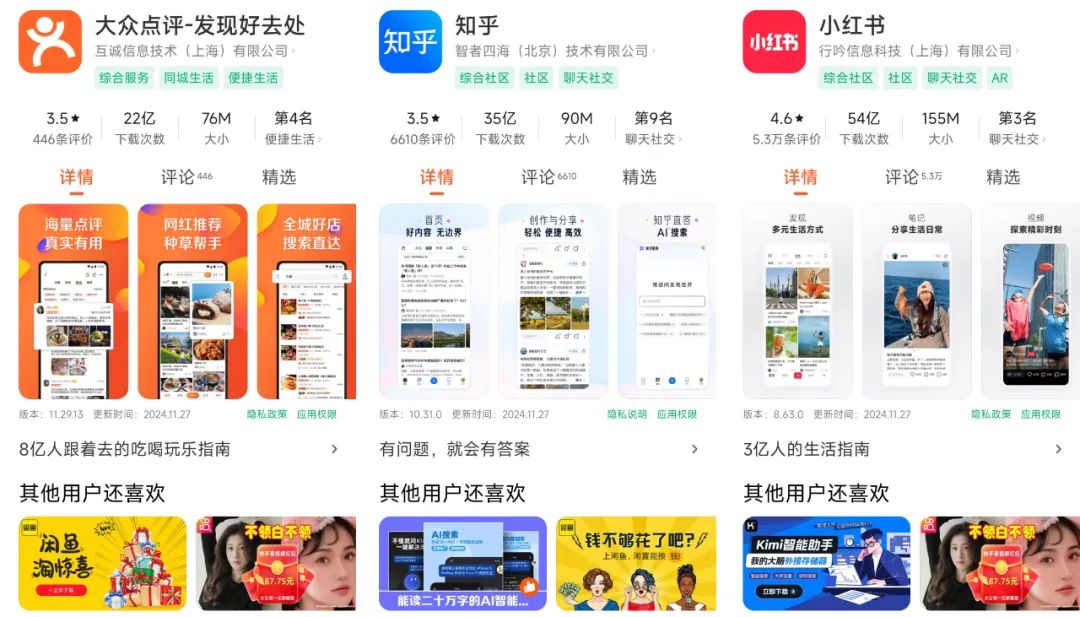
Source: App Store Screenshot
In addition to vertical apps, the rapidly developing AI search engines are also encroaching on Baidu Search's market share.
According to observations by 'Qujiexieshangye', there are 'supporters', 'opponents', and 'neutrals' when it comes to the rivalry between 'AI Search' and 'Baidu Search'.
'Supporters' have almost completely replaced Baidu with AI search. Stone (pseudonym), a UX designer working in Beijing, now rarely uses traditional Baidu Search. From crafting social media posts after team-building activities to finding professional data for reports, Stone chooses AI search engines for their straightforward answers. "AI search gives me direct answers, while Baidu gives me materials that I still need to sift through. Plus, AI search provides simple, direct answers, whereas Baidu is full of ads that I need to filter through myself," said Stone. When asked about scenarios where he still uses Baidu Search, Stone mentioned checking unfamiliar phone numbers for scams and looking up addresses.
'Opponents' believe that AI search engines lack accuracy. Xiaocao (pseudonym), a self-media content creator, believes that AI search results may contain factual errors. "I once used AI search to look up a company's financial data, and the result mistakenly labeled 2023 data as 2024 data. I only noticed the error because I have the habit of cross-verifying information, and since then, I've been very cautious about using AI search," said Xiaocao. Now, Xiaocao only uses AI engines for specific functions like refining and expanding text content, relying heavily on Baidu Search for information retrieval.

Source: Xiaohongshu Screenshot
Of course, more users fall into the 'neutral' camp, combining AI search with Baidu Search. Vivian (pseudonym), a project manager at a major company, said she uses AI search in conjunction with Baidu Search to complete her daily work. "I'll first use AI search to find data or inspiration for tackling work problems, then delve into the corresponding Baidu documents based on the data sources provided by AI. This allows me to cross-verify data and facts while enhancing my work efficiency," said Vivian.
02. The Turbulent World of AI Search
Baidu has been actively incorporating AI technology into its search functions.
In fact, after ChatGPT gained popularity, Baidu was one of the fastest-responding conglomerates in China. Thanks to its long-term investment in AI research and development and years of accumulated big data, Baidu quickly launched its independently developed large language model, 'ERNIE Bot'.
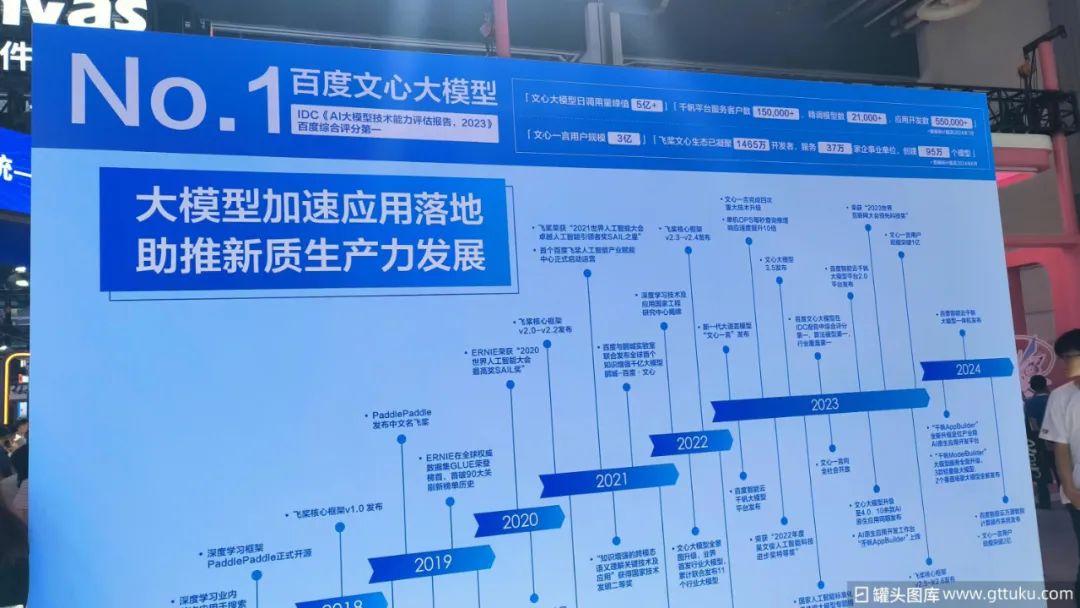
Source: Canned Stock Photos
According to 'Qujiexieshangye', over 20% of search results on Baidu Search are now generated by AI; on the Baidu App, 70% of monthly active users are engaging with AI-generated content.
In September this year, on the occasion of ERNIE Bot's first anniversary, Baidu officially announced the upgrade of the app to 'Wenxiaoyan', positioning it as Baidu's 'new search' intelligent assistant. Wenxiaoyan and Baidu Search are seen as the 'explorer' and 'flagship' of Baidu's search ecosystem. For example, the Baidu App integrates both traditional search and AI-powered answers presented by Wenxiaoyan. Wenxiaoyan emphasizes the native AI experience, presenting search results in various forms such as icons, music, weather, and restaurant recommendations.
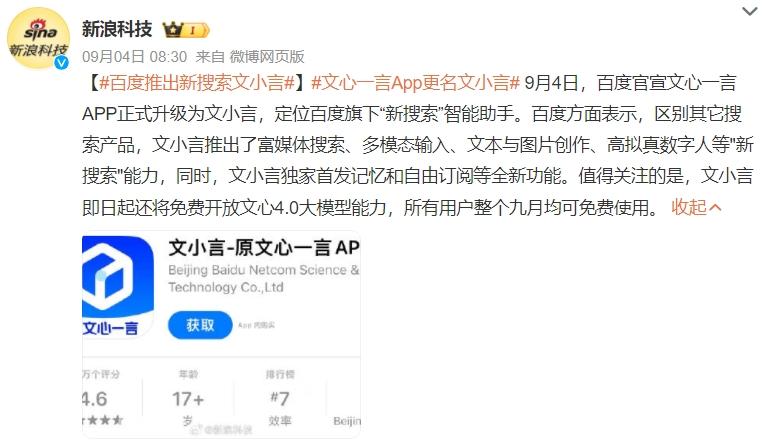
Source: Weibo Screenshot
While Baidu has taken an early lead in AI search, it hasn't fully established its dominance, as other conglomerates are also active in this field.
Each conglomerate's 'child' has its unique flavor. For example, Douyin's AI search has a distinct 'Douyin vibe'. Upon entering the AI search bar, Douyin's recommended questions, such as 'How can a senior student prepare for graduate school abroad?' and 'How to deal with a rebellious teenager?', align well with Douyin users' down-to-earth preferences.
When searching for 'How to spend the weekend in Weihai', ERNIE Bot provides a more detailed guide, while Douyin AI Search adds a video guide for a two-day, one-night trip to Weihai.
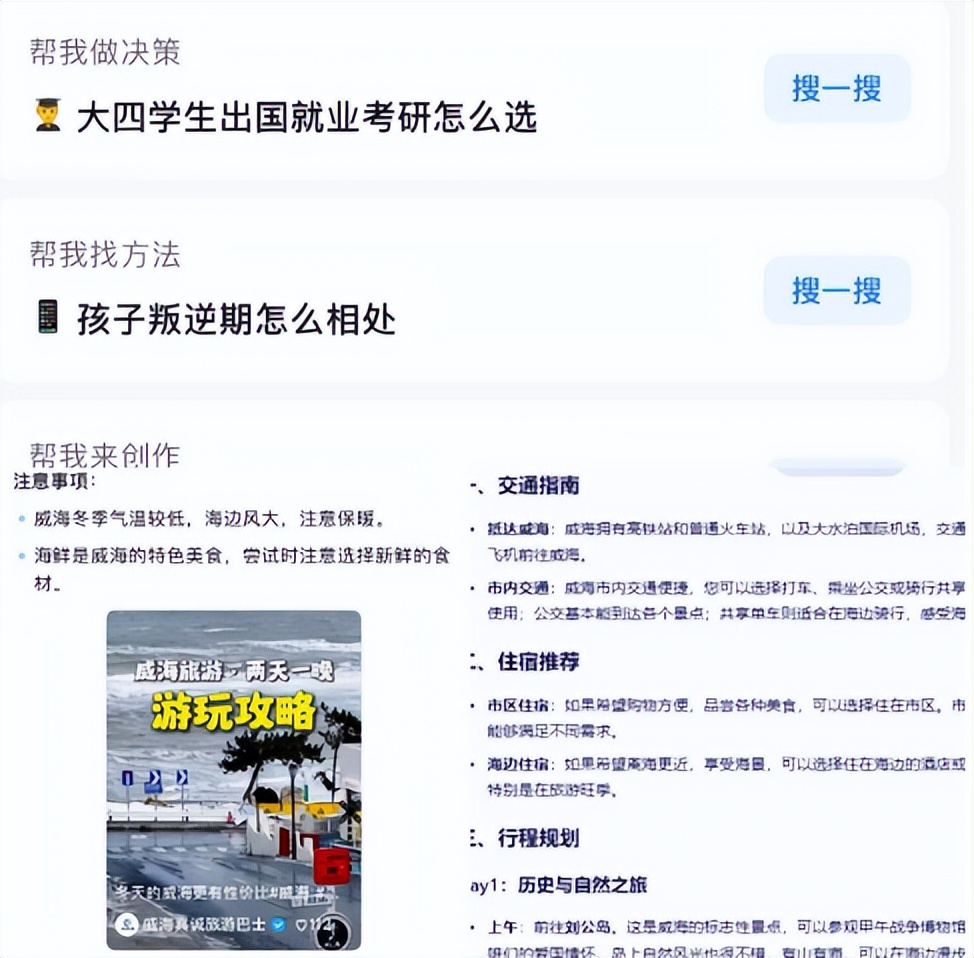
Image: Douyin AI Search Screenshot
Similarly, Kuaishou, another short video platform, embeds 'intelligent' services within its search function. Under this service, users can access AI-summarized content; similar to Douyin AI Search, Kuaishou's 'intelligent' service also displays short videos matching user search queries.
Alibaba's AI search app, 'MindFlow', has a stronger 'corporate vibe'. In addition to providing intelligent search, knowledge Q&A, and content creation assistance, it can quickly analyze files and web pages, generate summaries, and provide translation and Q&A services. Furthermore, it helps users read academic papers, financial reports, and statements more efficiently.
Tencent, relying on its Tencent Hunyuan large model, recently launched a new AI-powered work platform called ima.copilot (IMA), an AI tool integrating information search, long text processing, and text editing. According to Tencent's official account, IMA boasts powerful search capabilities, covering the entire internet and integrating the WeChat Official Accounts ecosystem.
From a user experience perspective, Tencent's IMA and Baidu AI Search offer a similar feel. "Specifically, I find Baidu's ERNIE Bot smoother to use. For the same question, ERNIE Bot provides more comprehensive reference answers. When I ask AI to integrate answers listed in a 1-2-3 format into a complete sentence, IMA sometimes omits content, whereas ERNIE Bot's content is relatively complete," said a user.
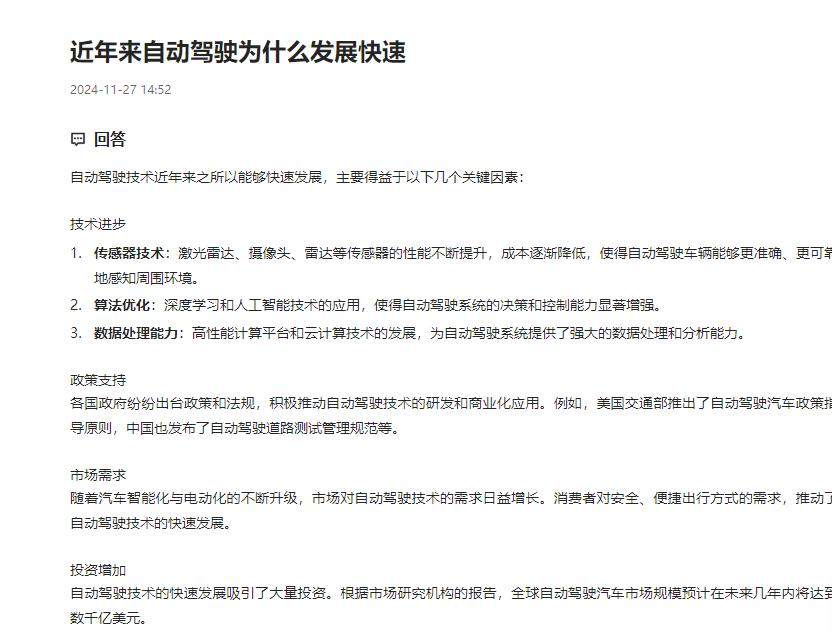
Source: IMA Screenshot
Even Zhou Hongyi, busy becoming an 'internet celebrity', hasn't forgotten to pave the way for 360's AI search. Not only has he launched 360 AI Search but also introduced a subscription model early on, establishing the 360 AI Membership system, covering tools for various scenarios such as images, writing, documents, and videos.
Recently, the 360 Group launched a new AI search product, 'Nano Search', positioning it as a multimodal content creation engine, directly competing with multiple AI search products like Baidu, Alibaba's Quark, MindMaster AI, and Perplexity AI. Zhou Hongyi stated that Nano Search, as 360's tool to redefine search, aims to achieve AI accessibility in the era of large models, making it usable by both 5-year-olds and 80-year-olds.
Apart from conglomerates, a notable startup in the AI search space is Dark Side of the Moon, founded just last year.
"I initially treated Kimi as a 'budget alternative' to GPT for PDF handling," said a heavy Kimi user. "My job involves reading a lot of reports, and I found Kimi's ability to dissect long reports to be impressive, significantly reducing my reading time. Later, I started using Kimi for text writing, data search, and other scenarios."
Founded just over a year ago, Dark Side of the Moon has attracted investments from star VCs and conglomerates such as Tencent, Xiaohongshu, Sequoia China, and Alibaba, becoming the most valuable unicorn in the large model space.
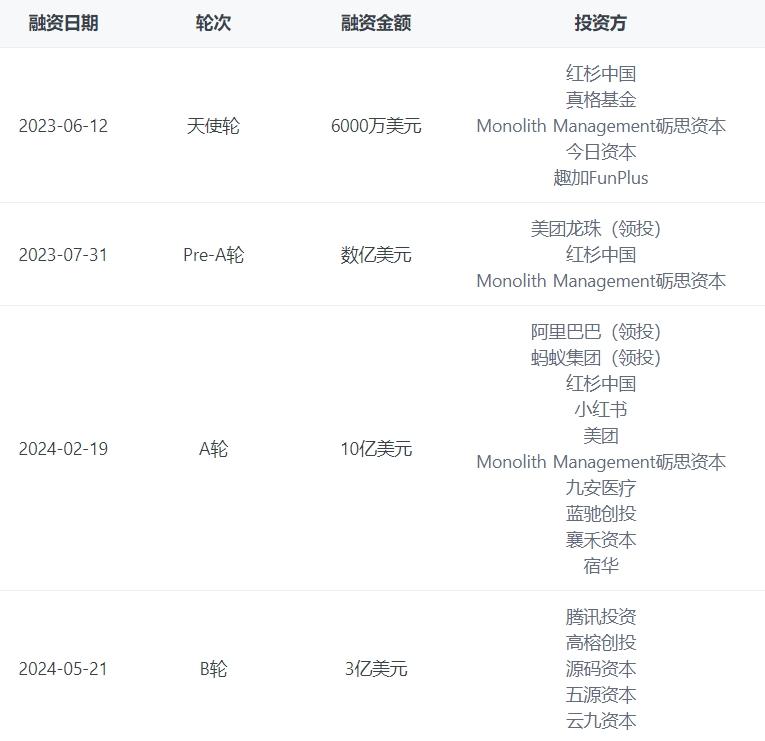
Source: ITjuzi Screenshot
On November 16, Yang Zhilin, founder of Dark Side of the Moon's Kimi, told the media that Kimi now has 36 million monthly active users, a number that continues to grow.
With the rapid development of large AI models, 'reshaping' search through these models has become an industry consensus. Currently, multiple giants including 360, iFLYTEK, Alibaba, Tencent, ByteDance, and Baidu, as well as upstarts like Dark Side of the Moon and Zhipu Qingyan, have launched AI search products with their unique features. Behind this trend lies an urgent user demand for intelligent summarization and proactive assistance under the AI search paradigm.
03. Can AI Search 'Earn a Living'?
The continuous evolution of large AI models has given AI search a 'human-like' feel, marking a qualitative leap in user experience.
AI search technology not only generates content but also places greater emphasis on semantic understanding and personalized recommendations. Furthermore, AI search technology can connect different internet service scenarios, building an intelligent product ecosystem. Most users now directly regard AI as an 'encyclopedia' to answer their questions anytime, significantly enhancing the AI search experience.
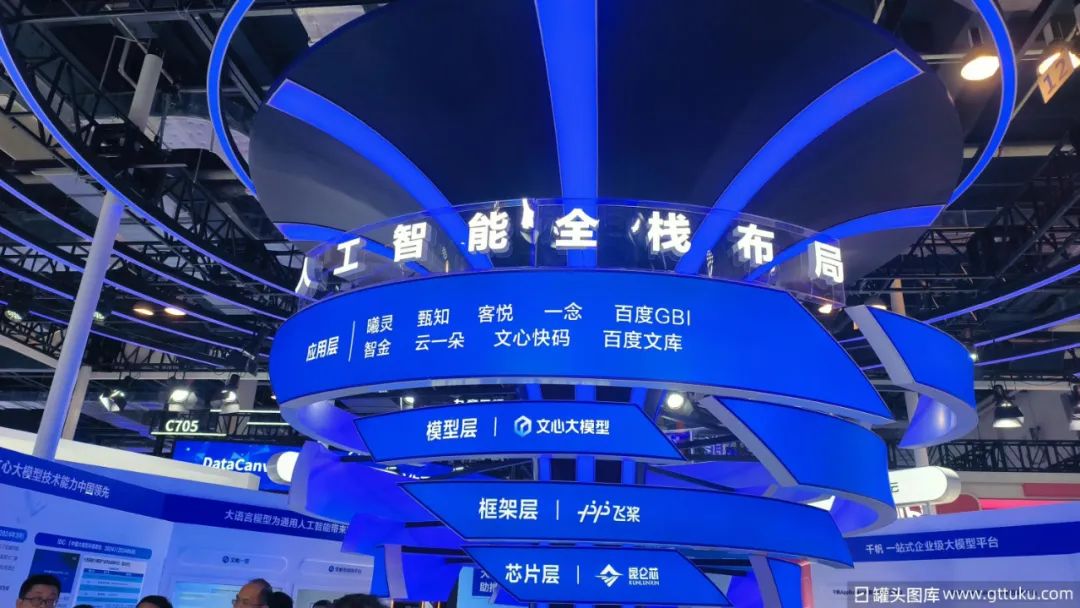
Source: Canned Stock Photos
This has fostered a certain dependency on AI search among users.
Feifei (pseudonym), a copywriter, has deep feelings about this. "I was an early adopter of GPT and ERNIE Bot. Initially, I found their content adaptability and accuracy to be average. However, now I can't do my daily work without AI search. It truly boosts my work efficiency, from copywriting ideas to detailed data."
However, accolades alone are not enough; AI search must also achieve commercialization.
One direction for AI search to generate revenue is through ToC, specifically membership subscriptions. For example, Perplexity AI offers a subscription service for USD 20 per month, while some products like WPS bundle AI features into paid packages. Since users expect 'valuable' services when paying, their tolerance for errors in AI engine output decreases compared to free usage. Therefore, many current paid services focus on more specialized AI functions rather than the search engine itself.
With C-end users being hard to monetize, some AI search engines turn their attention to B-end customers. The simplest monetization method is through advertising, which is relatively easy for conglomerates like Baidu and Tencent with extensive advertiser resources but more challenging for startups without an advertising business. These startups must compete not only for users but also for clients with conglomerates.
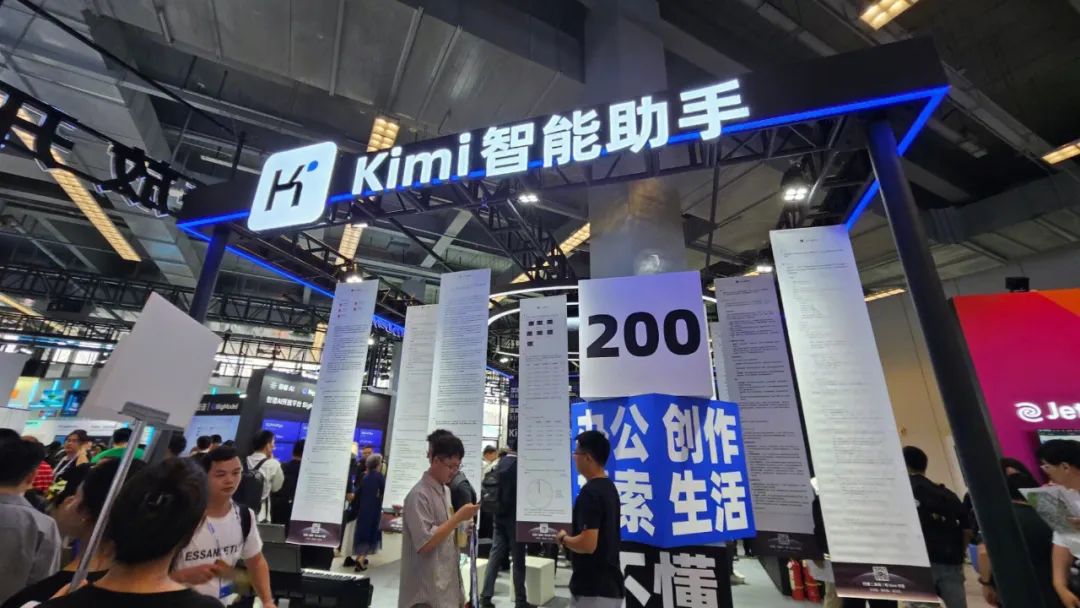
Source: Canned Stock Photos
Overall, while the AI search market is booming with intense competition, commercialization is still in its early stages, regardless of whether it's conglomerates or startups.
During Baidu's Q3 earnings call, Luo Rong, the newly appointed head of Baidu's Mobile Ecosystem Group (MEG), stated that Baidu is still in the early stages of exploring commercialization opportunities for AI search. In the short term, Baidu will prioritize enhancing user experience over market position. In terms of commercialization, early results have been seen in vertical fields such as law, education, and B2B services.
Regardless of commercialization efforts, the biggest hurdle for AI search engines aiming to completely replace traditional search engines is the limited scope of application scenarios. Traditional search engines are more like a 'general market' that can satisfy any need, while AI engines, while saving time and effort, cannot perform some generalized functions.
From competing for users to commercialization, for AI search engines to gain a firm foothold, they must rely on high-quality underlying data to train and provide higher-quality content feedback on the one hand, and on the other hand, they must preemptively establish a differentiated service commercialization model to seize market opportunities. As for whether traditional search and AI search will develop in parallel or integrate symbiotically in the future, it depends on how AI search evolves under commercial competition.

